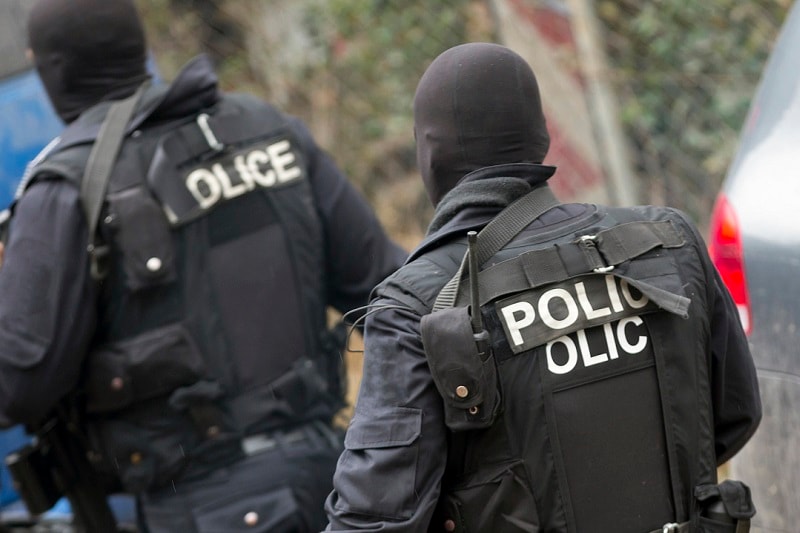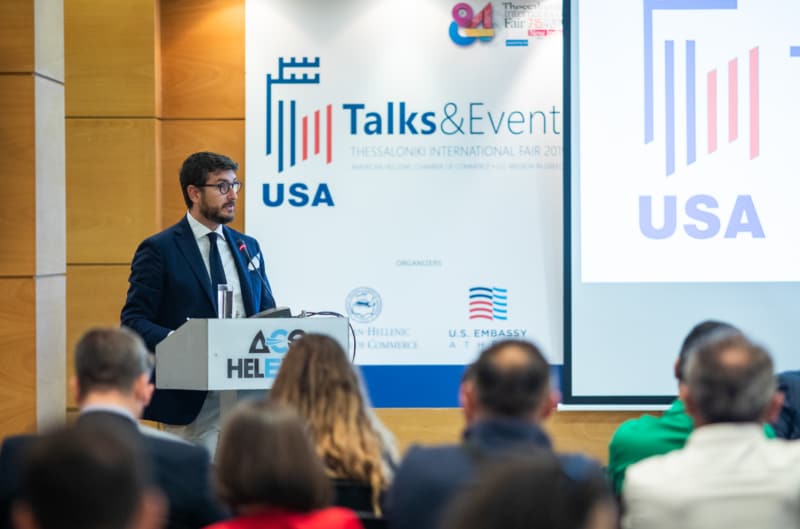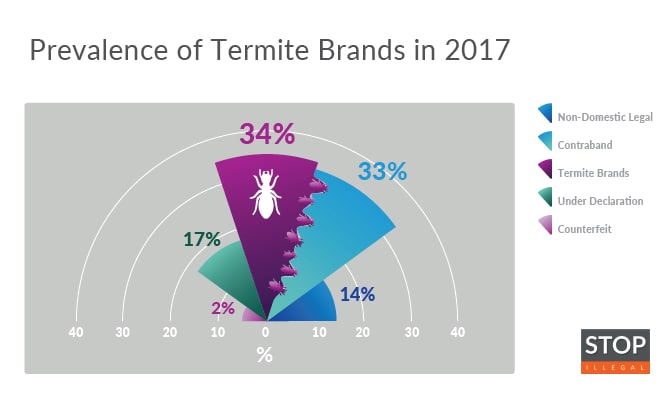
Ambassador Alessandro Minuto-Rizzo on combatting illicit trade in the Balkans
1 DEC 2020

Nestled between Europe, Central Asia, and the Middle East, and within touching distance of the Middle East and North Africa, the Balkans has been an important geopolitical area for thousands of years. But its central location and long borders make it a prime target for criminal organizations looking to move illicit goods internationally.
As President of the NATO Defense College Foundation (NDCF), Ambassador Alessandro Minuto-Rizzo is aware of the geopolitical importance of ensuring stability in the Balkans. In 2018, STOP: ILLEGAL spoke with him to find out what international bodies were doing to support the Balkans in tackling its issues with illicit trade.
Following a tumultuous year of disruption and change, we spoke to the ambassador once again to hear more about the developments in the region and its fight against illicit trade.
Since we last spoke in 2018, what has changed concerning illicit trade activity in the Balkans?
Ambassador Alessandro Minuto-Rizzo: Unfortunately, the Balkans remain at a crossroads for illicit activities. Our geography means that we have always been a transit region for most of the illicit flows coming from Central Asia, North Africa, and the Middle East.
This means that criminal organizations are well-rooted in our society and have dangerous and persisting relations with political and business elites. The result is a toxic spill-over of illicit activity due to weak governance. And over the past two decades, this has allowed these criminal organizations to evolve from local networks to global players. Many of these organizations now have a reach that spans across Western Europe, Latin America, South Africa, Turkey, and Australia.
We’re starting to see more frustration among local populations about corruption and organized crime, which has led to an increasing number of protests in recent years.
How has the NDFC aimed to tackle the issue of illicit trade during this time?
AMR: Over the past two years, the NDCF has continued to monitor the socioeconomic and political situation in the Balkans. Our monthly Strategic Balkans Press Review gathers many articles and analyses to provide readers with clear context regarding illicit activity in the region. The elements that emerge from our analyses are essential to understanding the key regional drivers of illicit activities.
Each year, we also try to bring together the region’s core public bodies and anti-crime agencies. Our 2018 conference “The Western Balkans at a Crossroads” and 2019 conference “Balkan Perspectives: Adapting the Partnership and Integration Paths” were attended by a wide array of public and private organizations. We had several keynote speeches dedicated to problems like crime, corruption, the connection with institutions, money laundering, and new challenges in the region. Networking and sharing ideas at events like this are fundamental to ensuring the best people are working together to tackle illicit trade.
Have you seen greater cooperation between the Balkans and Europe’s anti-crime agencies?
AMR: The European Union is working closely with the Balkans’ anti-crime agencies to tackle illicit activities. A few months ago, following the EU-Western Balkans Zagreb summit declaration, the Council of the European Union asked for broader convergence of operational standards and capacities between Western Balkans and EU partners in the field of organized crime. Tackling organized criminal networks engaged in migrant smuggling, the trafficking of human beings, drugs and firearms, drugs production, document fraud, and money laundering were a core focus of this agreement. Concrete results will take some time, but since 2017, police and prosecutor cooperation networks have been making good progress.
Partnerships between private and public institutions are also vital to ensure the efficiency of legitimate markets and the well-being of consumers. Since 2016, the NATO Defense College Foundation, with the support of Philip Morris International, has been engaged in putting these emerging challenges in a solid, conceptual, strategic, and diplomatic framework. We take into account NATO’s priorities and activities, raising awareness on illicit trade activities in the region. This cooperation allows a well-rounded discussion on illicit trade with different points of view, creating inclusive and original solutions to tackle the problem.
Has COVID-19 impacted illicit activity in the Balkans?
AMR: Like legitimate businesses, criminal organizations rely on open borders between countries and the free movement of people and goods. Balkan countries closed their borders in March to prevent the spread of the infection, and criminals tried to take advantage of the situation. Criminal groups are certainly exploiting the fact that governments have shifted their priorities to fight COVID-19 and its economic fallout.
It is likely that criminal actors will use new forms of technologies to carry out their activities, possibly shifting their manufacturing and logistics apparatus to smaller towns and rural areas where they will be less visible. In any case, closed borders are a bonus for illicit trafficking because they mean a surcharge in the cost of illegal goods.
What do you see happening over the coming years in the Balkans’ fight against illicit trade?
AMR: I want to be optimistic about the future of this arena. I hope to see changes that could stabilize Balkan countries. The normalization of the relations between Kosovo and Serbia could create positive snowball effects throughout the region, allowing them to move forward in the accession process to the European Union.
Innovative technologies are also becoming major players in the fight against illicit activities. In recent years, we have witnessed an increase in the active and passive tracking of goods at various stages of the supply chain, and the use of overt and covert labeling and coding systems and processes. GPS technology also plays an important role, particularly when it comes to the tracking of transported goods over long distances.
That said, the long-established tools used to fight against organized crime remain as important as ever: increased collaboration, information sharing, supporting criminal justice systems, and strengthening freedoms. We will continue to advocate strongly for the implementation of all of these factors.
Read the NDCF’s Game Changers 2020 report here, featuring 16 distinguished international specialists on 12 pivotal security subjects that will profoundly change the global strategic dynamics.


